#maurice is a war criminal I knew it
Text
~THINGS GO SOUTH IN THE SOUTHEAST~ Part One

Characters: Robert Fischer, Maurice Fischer, Uncle Peter (Inception), OCs
Warnings: angst, abduction, mentions of terrorism? Racial stereotypes, English is not my first language, and everything mentioned/ narrated is pure fiction, not an indication or a statement towards a particular race, religion and so on.
This could be read as an independent story, as it has nothing to do with the movie's plot/ scenario.
Prologue
Robert exhaled sharply, fighting to control his bouncing knee. He was at the verge of a panic attack, hadn't felt that way ever since his mother's death.
"Do you want some water sir"?, asked one of his guards.
"No. No thank you".
Focus! Focus Robert for fuck's sake!, his mind shouted at him. He had to keep his cool if he wanted to carry out his mission. Well, he didn't- hell he didn't, but what other choice did he have? Lead his company-sorry, his father's company to financial ruin, or die. Die in Abu Dhabi most likely, and get eaten by the flies.
He stuck his face to the plane's window, feeling the moisture radiate to his whole body. He didn't have a gun pointed at his head yet, but still, his life flashed before his eyes. Not his future. The past.
EXPLOSION DESTROYS MAJOR GAS FACTORY
MAURICE FISCHER FACES RUIN
HUGE CORPORATION SPOILED AFTER ACCIDENT
UAE AND USA COMPANIES NOW AT FINANCIAL WAR
He knew it. He had warned his dad at the council not to make deals with these people. Maurice had simply ignored him.
A sudden sound threw him off his seat. A continuous ringing. It took him a while to realize it was the phone in front of him.
"Should I pick it up"?, that same bodyguard asked him. He was forgetting his name. Could be Victor. Focus you idiot!
"Yes, hello"? Robert said breathlessly, holding the device close to his ear. Not too close. He was scared of who it might be. “Hello”!?
“Hello Robert”, his father answered, taking his time. ;I wanted to inform you that Carl will be waiting for you once you arrive.
“"I thought-I thought, he lowered his voice, "that mr Smith would send his men”
“"No, it’s too risky. Besides, it’s gonna be just a meeting Robert! Don’t be a coward and don’t mess things up ‘cause this is a very important situation, you hear me? I have to go now.
“Alright dad”, he breathed, but Maurice had already left.
“Tie your belt Rob”, his pilot said through the microphone. ;In half an hour you’ll be having three women jumping around you like eager puppies.
“They’re civilized people”!, Robert shouted. Just… a bit dangerous.
Robert Fischer was the son of one of the richest men on Earth, heir to a company successful like no other. His whole life revolved around custom tailored suits, important contracts and people who made him feel inadequate and alone. In other words, a business meeting meant -as his dear, beloved father had pointed out- nothing more than a long, boring night. Until that fatal explosion happened. The accident that threatened to put his father in a prison cell for terrorism and association with criminal activities against his country.
Chapter One.
Robert smoothed the fabric against his skin, taking in the warm temperature of Abu Dhabi. Stoicism was a key trait of his personality, and with stoicism he intended to carry out his mission.Or, rather, talk to the guests that filled that huge hotel salon.
The cold air of the air conditioning sent shivers down his spine, making want to sneeze. He put a timid smile on his face instead, and shook the hand of the man standing by the door.
“Mr Fischer. It’s an honour to meet you. Your father’s ventures are quite legendary”, said the man, who was, most likely, organizing this event. It must had taken him by surprise, meeting Robert in a place he hadn’t invited him in. Personally invited him, that evening when he had given the list of names to his secretary.
“Thank you sir”, Robert said, nodding politely. “And may I say that you are a worthy heir of your ancestor’s work. After all, what else could a man desire”?
The man smiled at him in agreement. Fuck, he needed to remember his name.
“Is this your first time in the Emirates”?
“Oh yes, business has never brought me here before, and I don’t travel much otherwise. Of course, though, I couldn’t decline your invitation. I actually arrived only an hour ago, so I haven’t discovered your country’s beauties yet”.
“I’ll gladly show you around Mr Fischer, provided that you stay long enough for a trip”.
“I’ll have to leave soon for Sidney I’m afraid. It’s quite a busy time of the year…”.
Robert wandered around the room, giving unsatisfied glimpses at the expensive furniture and luxurious lights hanging from the ceiling. He gave handshakes and charming smiles to the ladies, trying to escape their invitations for a drink. The noise and low music made the room feel suffocating, or, so he had said on his way to the men's restroom.
He locked himself in one of the toilets and answered his phone anxiously.
"Hello mr. Fischer", came the flat voice he'd come to know just a week earlier. "The target's name is Imran Youssef. Don't lose sight of him. Learn everything you can".
"Alright", he said, his voice trembling. "But how will I recognise him,"?
"They'll introduce him to you the moment he arrives- remember, he is the cousin of the company's owner. But you better behave a bit more confidently, if you wanna keep your head on your shoulders".
Robert gulped hearing his last words. "And you will keep your end of the deal"?, he asked, but John Smith had already hung up the phone. Again.
Robert ran his hand through his hair and opened the door. Even before he had seen him, he sensed the presence of a man, and flinched. Raising his head he was met with a blond, quite muscular male in a modest suit that made him look out of place and concept. It could be his sunglasses, but Robert thought he was looking at him rather suspiciously.
Robert washed his hands as thoroughly as every respected millionaire would, put a stray strand of hair back in place and left with a heavy sight. Thankfully the stranger didn't follow him. But why the hell would he in the first place? Fuck Dad. Fuck.
As he arrived at the main room again, the voices seemed to be a bit raised, people gathering towards the entrance. Robert guessed it would be his man, so he sat by the bar, ordered a martini of which the name sounded nice, and waited patiently.
After a while he saw the Arab coming to his way, accompanied by three men and two ladies, young enough for him to think they were his daughters.
He approached the man with the calm and confident demeanor he'd inhabited over years of practice.
"Mr Youssef. I'm Robert Fischer", he said steadily, facing the cold stare of the Arab.
"Your cousin's company and my father's company lead a corporation together".
"Yes, I remember. Until the accident happened and you let us down".
"You cannot lead an empire with sentimentality, Mr Youssef, as I'm certain you're aware. Nevertheless, we're terribly sorry for the damage done in your factory".
"I did not expect to find you here", Youssef continued. Weariness and dislike were carved on his face, but the woman on his left was flashing smiles.
"Ah well, how does the saying go… All roads lead to Rome", Robert said pleasantly. "I'm not on a business trip currently- I've been sent to my death, actually- I was hoping for a good two- day's rest and some sightseeing. The gentleman who organized this event had the kindness to invite me. I was actually hoping", he said after a reluctant pause, "that we could look past our business differences and have some fun".
"Are you sure you are ready for some fun, Mr Fischer"?, asked one of the ladies.
After a searching glimpse at Yousef's face, Robert smiled widely.
"I'm guessing we will find out soon miss".
Two hours later, shortly after Youssef had left, he politely greeted everyone and left for his hotel room. The warm air enveloped him in a suffocating embrace. He felt exhausted, while an unraveling feeling of worry was eating him up. He had talked to Youssef. He had made him laugh, drink, almost pat him on the shoulder. But he had not acquainted the information Smith wanted- he'd have to drug him in order to get that information!
Right after stepping out of the building, he was faced with two men, dressed in black.
"Mr Fischer", the one of them said, and in his voice Robert vaguely recognised a familiar tone. A black Sedan was parked right next to them. Robert nodded and followed them into the car eagerly, craving a long sleep, which he wouldn't have.
The slow humming of the machine was soothing, helping him drift off to a light sleep.
"Sir, we're here", startled him the voice of his guards. The door opened, and Robert thanked them for their service, only to be reminded that they would escort him to his room.
The hotel Smith had ordered him to go to couldn't be more different than the luxurious building he'd visited before. Dusty old rugs and ripped tapestries covered the walls, along with an unpleasant, vague scent of neglect.
"Stay here", Robert said, leaving his bodyguards standing by the door, his suitcase on hand.
A glimpse of satisfaction appeared in his eyes on sight of the dinner room. A buffet was waiting there for him with food of very questionable quality, but he wasn't feeling particularly picky at the moment. He walked up to the receptionist and leaned over the bench.
"Hello miss.I would like to rent a room".
The woman looked at him as if Octavian Augustus himself had come to talk to her.
Although she has no idea who that is, he thought to himself. "A room? To sleep in? Do you speak English"?
The woman kept her eyes on him, shaking her head slightly. Robert turned to his men for some help, but they looked just as miserable as he did. Robert sighted heavily and nodded at the board with the keys, then to the staircase to his left.
The receptionist came back to life, finally understanding what it was that he wanted. After she let some words in Arabic flow out of her mouth, she signed him to come with her. Robert followed her without second thoughts, eager to lay on a bed no matter how shitty the mattress was.
The weird duo snaked around dark corridors and through rusty doors with labels on them, of which Robert understood exactly nothing. After a while though, they reached a dimly lit room, where a man had fallen asleep on a chair, legs stretched on his desk. The receptionist woke him up placing a soft hand on his shoulder, and the man flinched, opening his eyes which laid directly to Robert.
“Hello sir”, he said with a hesitant, raspy voice.
“Hello”, Robert forced a smile. “I would like to rent a room for one night”.
The mancocked a brow in disbelief, and with disbelief and restraint he carried on the conversation with that obviously very rich, very out of place American.
Ten minutes later, Robert returned to the reception room, accompanied by the woman, who eagerly gave him the keys to his room. Robert’s eyes flickered to the exit of the building and back, scanning the space. No one was there. A threatening silence seemed to have fallen upon the room. Robert went on to ask the woman if she had seen anyone come or go, but then he remembered that she didn’t speak a word of English.
Dropping the keys on the παγκο mindlessly, he ran outside.
Darkness and dust covered everything in the city’s suburbs, the area being empty as far as the eye could see.
Where the hell have they gone?, the boy inside him screamed. Maybe they had orders to leave as soon as he was settled-after all, Smith himself had told him to go to that God-forsaken place, he should be safe. But they had taken his suitcase with them. He had personal stuff in that suitcase, which they knew he’d need for the night…
Fear was eating him alive as he called Carl with sweaty hands. All he learned was that the number he had called was deactivated, or did not exist.
Robert leaned against the wall, choking on the heated air and called John Smith.
“Fischer? What’s the matter”?
“My guards are gone. I went into a room for a moment and now I can’t fucking find them”, he answered, sounding surprisingly composed.
“Alright Fischer , listen carefully. Stay in your room, lock the door, cover up the window, and wait. I’ll send someone ASAP. The code is 58091”.
The phone call ended with a soft beep and a deathwish. Robert climbed up the staircase to his room, closed the curtains, breath erratic, he brought his feet to his chest and sat there, waiting for the monster to crawl out of the bed. Needless to say, his appetite had disappeared but nevertheless, he found calm in the darkness, the stillness of the night. Anxious though he was, he didn’t feel afraid anymore, or sad, or anything really. Because, he had come to realize a long time ago, he had nothing to lose. Uncle Peter, of course, would be sad, would grieve him appropriately. And right after the funeral and a deep sight, he would start searching for his replacement.
A quiet knock on the door pulled Robert away from his thoughts. He jumped on surprise, and moved slightly towards the door. The knock echoed again.
"58091", said a male voice and Robert was quick to open up. Three men waited outside of his room, their figures almost inseparable from the dark walls.
"Mr. Fischer, Smith sent us. We have men coming out our way, we have to hurry".
Robert nodded and silently followed the two men in front of him downstairs and out of the hotel. The air had at least turned a little colder. The men rushed into the car, forcing him into the back seat. A hint of uncertainty hit Robert, instinctively noticing something he couldn't pin-point. He sighed and laid back on the seat.
Patient as he was, he didn't bother asking any questions, remaining silent, arms crossed tightly around his chest. Up until his goddamn phone rang again, and a gun appeared. Pointing at his head.
Robert felt his whole body light and empty.
"Answer it", the man next to him ordered, and Robert shook his head reassuringly.
"Fischer", said Smith right away, and Robert put him on speaker.
"Yes, I'm here".
"Alright. My men are coming for you. Should be there in fifteen. Stay where you are and wait. Remember the code"?
Oh, of course he did. Along with twenty others, apparently.
"58091".
Smith was out, and Robert pinned the men with a look somewhat annoyed.
"Happy"?, he asked handing him over the phone.
"Shut up", the man growled, but at least he hid the gun away.
"May I ask what it is that you want"? Robert then said calmly. "Or…who are you"?
I suppose I'll find out very soon, he sighed. And gods help me cause no one else will.
#cillian murphy#short story#inception#robert fischer#fanfic#independent story#fiction#robertfischerfanfiction#abduction#gunfight#action#inception moodboard#robert fischer moodboard
4 notes
·
View notes
Text
Anonymous asked: Have you watched Lupin? What did you think? (And are you a fan of the books or other adaptations of the character?)
The short answer is yes, I have seen Lupin on Netflix. Overall I enjoyed it so long as I suspended my disbelief at certain things.
Unfortunately it took being struck down by Covid and being bedridden for me to actually to binge watch the whole series. So I was behind the curve when my friends, French and those outside of France, started to talk about it around me. I had to beg them not to give away spoilers until I had seen it all.
It did surprise me that it won rave widespread reviews outside France because usually French drama series don’t travel very well outside of France. I’m sure even Netflix had no idea how successful it would be for them. I’m sure being in Covid lockdown had something to do with it. In any case I don’t begrudge its success as it’s well earned.
However I wasn’t too surprised that within France itself the French reviews were decidely mixed and divisive. The critic at Le Point painfully hit the nail on the head when he wrote, “Le plus gros défaut de l'ensemble reste la pauvreté des personnages, tous unidimensionnels, caricaturaux et aussi épais que du papier à cigarette.“ - loosely translated as, ‘the biggest flaw of the whole thing remains the poverty of the characters, all one-dimensional, cartoonish and as thick as cigarette paper’.
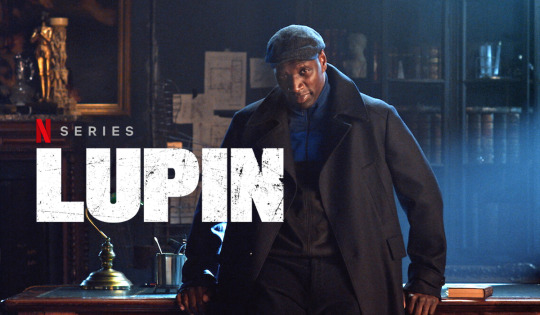
There’s a growing amount of good French stuff on TV and streaming services but a non-French audience will not have had the chance to have seen all of it yet. I can think of any number of French television drama/dramedy/cmedy series that are much better than Lupin with better plots, characters, and even a truer perspective of French society and even modern day France (Dix pour cent (Call My Agent!), Le Bureau des Légendes, Engrenages, Baron Noir, and Paris Police 1900). But you would be hard pressed to find anything that comes close to Lupin just for the sake of something fun to watch during the Covid lockdown.
What makes the current generation of home made French television series so interesting is how much of it is a reflection of France’s own anxieities about itself and its role in a increasingly English speaking dominating world. In a funny way it sees itself as defiant plucky Asterix fighting off the Roman American cultural hordes from totally invading their Francophone culture.
For sure, it has societal and racial issues stemming from its colonial legacy and issues of immigration and integration (France has the largest Muslim population in Europe). However it seems to want to ‘resolve’ these issues through the almost sacramental adherence to French secularist ideals rather than American inspired ideas of social justice and equity. There’s always been something very admirable about the French - from the time of General de Gaulle and perhaps before - always swinging from snooty ambivalence to outright antipathy towards the influence of American culture ‘americanising’ French culture (no to Walmarts or fast food chains for example).
Is it any wonder then that Netflix’s ill-conceived American series ‘Emily in Paris’ was widely hated and mocked within France for just perpetuating those lazy American tropes of Paris and French culture?

Personally I know Francophile Americans, long resident in Paris, who were frankly embarrassed and spent a lot of time apologising to their French friends. I have one American friend who has told me that she was so mad that she would have blind folded Emily and shoved her hard in the car boot and drive her all the way to the poorest of the banlieues in the grimey crime saturated suburbs of Paris - Seine-Saint-Denis came to mind - and dump her preening arse there. She would slap her and tell the spoilt entitied brat to make her own way back home - you know, to her spacious apartment in one of the most expensive arrondissements of Paris that of course(!) any American intern working for French marketing firms can afford.
I digress. My apologies. Watching this God awful show gives me PTSD.
Onto Lupin.
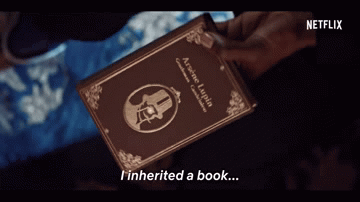
Thankfully Lupin doesn’t try to play to non-French tropes of what Paris is or isn’t. It does skim the surface of current discontents within French culture and society (race, class, power, and money) but ever so lightly so as to not get in the way of just spinning a good crowd pleasing yarn. It invites you to have fun and not to think too much. I have to be honest and say I enjoyed it as long as I suspended my disbelief here and there.
Lupin refers of course to the character Arsène Lupin, the French gentleman thief who stole jewellery from Parisian haute bourgeois and aristocracy at the turn of the century. Lupin, as written in the novels and short stories by Maurice Leblanc between 1905 and his death in 1941, was the archetypical anti-hero, a Robin Hood who stole from those who deserved it but kept the loot himself. He was often portrayed often a force for good, while operating on the wrong side of the law.
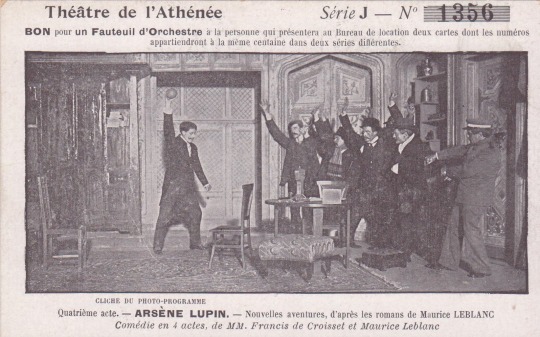
Lupin never really made much of an impact outside of France as he had within France where is revered with many French film and television adaptations. In England, we already had a Lupin type character in the form of A.J. Raffles, a cricket playing gentleman thief with his aristocratic side kick, Bunny. E.W. Horning’s stories of Raffles’ daring heists proved to be quite popular with the British public when Raffles first appeared on the scene in 1898. And even later Leslie Charteris’ The Saint took over the mantle from Raffles as the gentleman thief/adventuring Robin Hood.
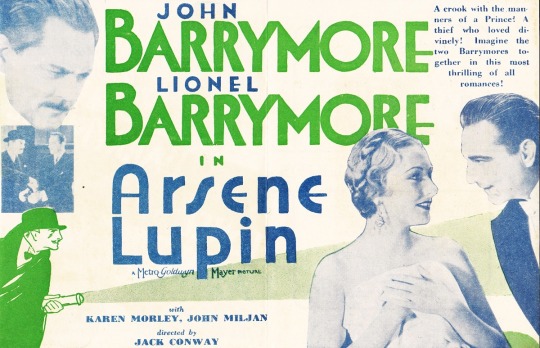
I think Hollywood tried to introduce him to an English speaking audience (legendary actor John Barrymore even played him) but he didn’t really take off and eventually they found their gentleman thief archetype in Sir Charles Lytton aka The Phantom (played by David Niven and Christopher Plummer) in the Pink Panther movies. So Lupin never got the English audience he deserved.
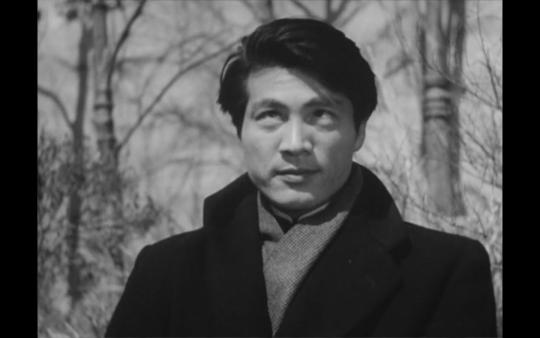
I first got wind of who Arsène Lupin was when I was growing up in Japan as a child. As strange as it sounds Lupin was big in Japan especially after World War Two. The Japanese did their own take on the Lupin character using Japanese actors and plot lines but it was Lupin.
I don’t know how exactly but I remember watching these scratchy DVDs of these Lupin inspired films. I think it was one of my parents’ Japanese friends who was mad for all things Lupin and he had studied French literature in France. Jogging my memory I now recall these black & white films were done in the 1950s. One starred Keiji Sada and the other version I remember was with Eija Okada (he was in Resnais’ classic film, Hiroshima Mon Amour) as Arsene Lupin called (I think) Kao-no Nai Otoko. I didn’t understand most of it at the time because it was all in Japanese and my Japanese (at the time) was pitiful, but it looked fun.

There was even a Japanese manga version of Lupin which was called Lupin III, - so named because he was the grandson of the real Arsène Lupin.

The 1960s manga series spawned generations of TV series which I do remember watching and finding it terribly exciting if somewhat confusing.
It was French expatriate friends whom my family knew that introduced me to the real Arsène Lupin. They had a few of the books authored by Maurice Leblanc. It was in French so I read them to improve my French but enjoyed the story along the way.
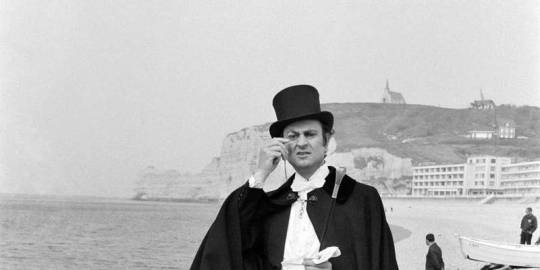
I also remember them showing me scratchy episodes of the 1970s Franco-German TV series ‘Arsène Lupin’ with the monocle wearing Georges Descrières in the lead role. It was a classical re-telling of the adventures of the aristocratic gentleman-burglar and very family friendly viewing. I don’t really remember much of it to be honest.
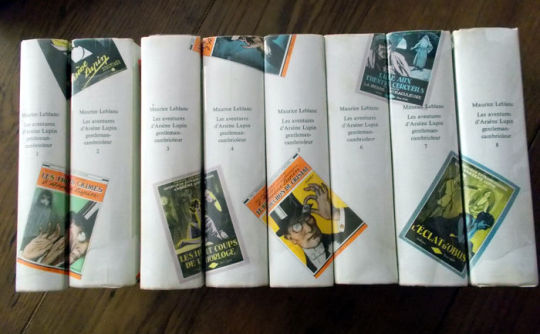
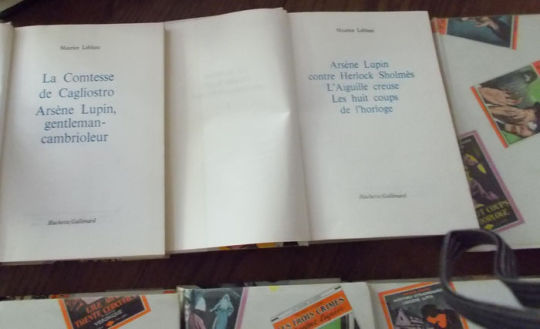
It was some years before I actually started to read more of the Maurice Leblanc’s novels and short stories collection. I have them all now. I was a teen and I remember being stuck in a snowed in a Swiss Alpine chalet and with nothing else to do but pull out a few dog eared books from the bookshelves belonging to our French host and read to pass the time.
I read Les Dents du tigre, Arsène Lupin vs Herlock Sholmes, and Les Huit Coups de l'horloge and thoroughly enjoyed them in the original French. I was already reading classic detective and mystery novels (Sherlock Holmes, Poirot etc) so it was natural to read the adventures of Arsène Lupin.
I haven’t got around to reading all the novels and short stories but I have read most of them and I enjoyed them all immensely. In the same way Conan Doyle, through Holmes and Watson, manages to conjure a convincing picture of late Victorian and early Edwardian England, so Leblanc manages to give us a taste of Belle Epoque France through the eyes of his suave gentleman-thief, Arsène Lupin.
Indeed it's a lot like reading Sherlock Holmes in that you're always trying to figure out how he did it, but the difference is that you are rooting for the bad guy. You can’t help but be drawn to this gentleman thief who is charming, comic, playful, and romantic and generous. Lupin is not an intellectual puzzle-solver but first a master criminal, later a detective helper, who maintains his curious ethics throughout his adventures. In this regard he is very much the anti-Sherlock Holmes; and I wasn’t disappointed when I actually read the story where Lupin faces off with Holmes himself. Brilliant!
I’ve also seen the 2004 French movie with Romain Duris in the Lupin lead role and it also starred the majestic Kristin Scott Thomas and the sexy Eva Green.
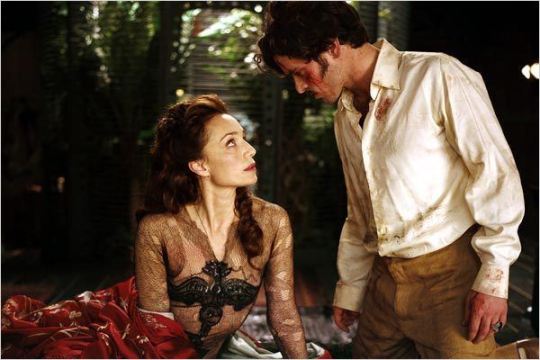
It was a decent adventure flick and it was a clear confluence of different Lupin novels (The Queen's Necklace (introducing Lupin's childhood), The Hollow Needle (where the treasure is the macguffin of the story), The Arrest of Arsène Lupin (the gala on the ship as a backdrop) and Josephine Balsamo, (one of Lupin’s most memorable opponents in the The Countess Of Cagliostro).
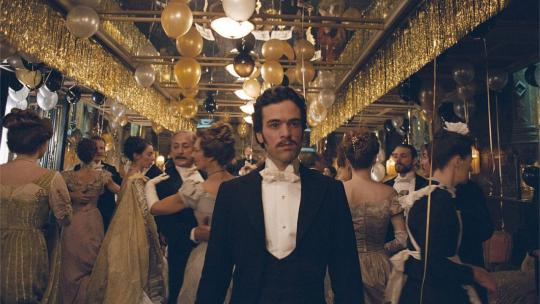
Romaine Duris, a fine classical actor, was I felt miscast because he didn’t have Lupin’s levity of wit and be at ease within himself. I love Duris in his other films but in Arsène Lupin and even in his other film, Moliere, he seemed ill at ease with the role. Perhaps that’s just me.
The latest Netflix adaptation (or reimagining to be more precise) is a welcome addition to the world of Arsène Lupin.If you don’t over-think it, it’s bags of fun.
Omar Sy is immensely likeable. Sy is a deservedly a big star in France - he won the best actor César for “The Intouchables,” an international hit - and has played forgettable secondary characters in big-budget American special effects movies (he was Chris Pratt’s assistant in “Jurassic World” and a minor mutant in “X-Men: Days of Future Past”). It was reportedly his desire to play Arsène Lupin, whom he’s compared to James Bond (“fun, funny, elegant”), that led to the series, created by British writer George Kay. And it is on his charm that the series largely, though not entirely, rests.
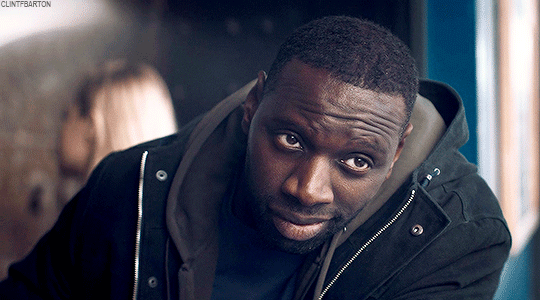
So the basic story revolves around a jewellery heist. Sy plays Assane Diop, a first-generation French-Senegalese man in contemporary Paris. A collection of Lupin stories, a gift from his father - whose undeserved fate Assane set himself to avenge in long-delayed, Count of Monte Cristo style upon a criminal tycoon - has made the actual Lupin books a foundation of his life and profitably illicit career. This fan-ship goes as far as borrowing practical ideas from the stories and constructing aliases out of anagrams of “Arsene Lupin,” a habit that will attract the interest of a low-level police detective (Soufiane Guerrab as Youssef Guedira) who shares Assane’s love of the books. (That the detective also shares an initial with Lupin’s own adversary, Inspector Ganimard, is possibly not a coincidence.)
Among the many comic delights of Lupin, is an unspoken one. Time and again, the show’s hero, master thief Assane Diop is able to slip into a place unnoticed, or by assuming a minor disguise that prevents witnesses from providing an accurate description of him to law enforcement.
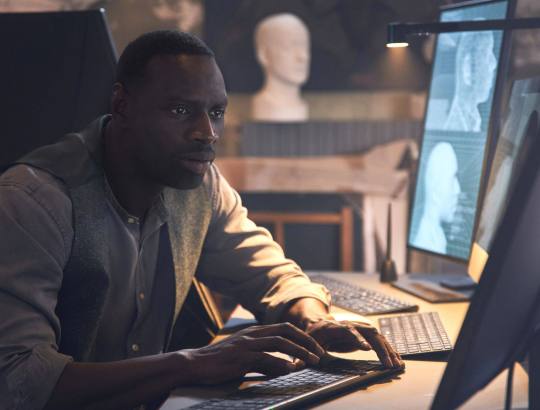
Why is this funny?
Because Omar Sy is six feet three (and, since most actors are short, seems even taller), is roughly as wide as soccer pitch, and is memorable even before he flashes his infectious million-Euro smile. This is not a man for whom anonymity should be possible - even allowing for racial bias in a majority-white country, Assane would be memorable and distinctive - and Lupin seems cheekily aware of this. Like the various incredible sleights of hand Assane deploys to pull off his thefts and escapes, his ability to be anyone, anywhere, is treated more as a superpower than as something even the world’s greatest criminal would be able to pull off.
At one point, when he’s slated for a cable news appearance as a much older man, we learn that Assane is also a master of disguise. The revelation of this skill arrives with a wink in the show, and it feels pointless to ask where he learned it, or how he affords movie-quality latex and makeup. Or rather, asking the question feels wrong.
We know this is impossible, the show seems to be asking its viewers again and again, but isn’t it so much fun?

The performances and the production - it has that particularly European filmic quality of feeling natural even when it gets stylish - keep the series warm even as the plot is made up of incredulous contraptions that require everything to go right at just the right time and for human psychology to be 100% predictable. Its physics are classical rather than quantum, one might say, and like the world itself, which becomes more curious the deeper you peer into things, it is best handled along the surface. You do not want to take too much time working out the likelihood of any of this happening. Just go along for the ride.
Somehow, though, it all works because Sy is so magnetic and charming that questioning plot logic feels wildly besides the point. Though he never looks appreciably different in his various aliases (including one ill-conceived live-TV appearance done under old-man makeup and a thick beard), he changes his posture and voice ( if you watch it in French that is) enough to allow for the willing suspension of disbelief, in the same way that any lead actor as Superman has to do when playing Clark Kent. But Sy and the show are at their strongest when Assane is just being his own Superman self, utterly relaxed and confident in his own skin, and so captivating that his ex-partner, Claire, can’t really resist him despite ample reason to.

If Assane seems practically perfect in every way, he is not perfectly perfect. His most obvious failing is that his criminal shenanigans and revenging make him less than reliable in his daily life, affecting his relationships with ex-partner Claire (Ludivine Sagnier, whom non-French audiences might recognise from “The Young Pope” and “The New Pope”), who despairs of his inability to show up on time to see his son Raoul (Etan Simon). Like Sy, Sagnier brings a lot of soul to her part - though onscreen far less, she’s as important as Sy to the series’ success - and the two actors have great chemistry. Also impressive and key to creating sympathy are the actors who play their flashback teenage selves, Mamadou Haidara and Ludmilla Makowski. Really, you could do away with action elements and build a series around them.
This is a pity because Lupin often fumbles its emotional reveals in other parts - the story of Diop being torn between his job and his family feels like wheel-spinning, rather than genuine emotional intrigue.

Soufiane Guerrab is wasted in the Young Detective Consumed by the Case role and spends most of this season pinning colour printouts of book covers to cork boards and getting waved off by his colleagues, who are all blinded or otherwise hampered by careerism.
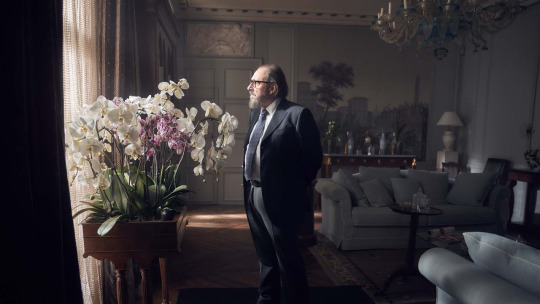
But to my mind the weakest link is the villain himself and his daughter. Veteran actor Hervé Pierre hams it up as Hubert Pellegrini, a business tycoon who is the patriarch of the Pellegrini family. He just comes across as animated cartoon villain with no character depth (think moustache twirling Russian villain, Boris Badenov, in the Rocky & Bullwinkle cartoon shows). He just emotes anger a lot without any nuance or hint of complexity.

Even Clotilde Hesme who plays the daughter who is unaware of her father’s criminal tendencies is miscast. For the record I adore Clotilde Hesme as she one of France’s most talented classical actresses (that non-French outsiders will not have heard of). She is a classically theatre trained actress and is one of the best stage actresses of her generation that I have ever seen. I’ve seen her in plays where she is just mesmerising. She has said before that she’s more comfortable on the stage than she is on the screen. And when she has been on screen she still has been a powerful presence. She’s actually won a César too. Here in Lupin, she seems to have no agency and looks bored with nothing really to do.I really hope they give her more scenes in the next part of Lupin.
The series is at its best when following Diop enacting his plans, and when revealing each one from a different vantage, making us privy to every moving part like a magician revealing his secrets. The show captures the momentum of a clockwork heist, the tension of sudden obstacles and the ingenuity of improvised responses, with thrilling precision (especially in “Chapter 1 - Le Collier de la reine,” directed by Now You See Me’s Louis Leterrier).
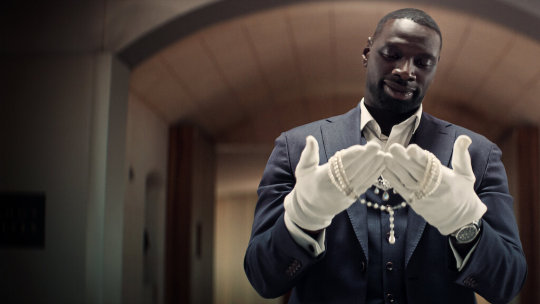
Lupin is also politically incisive when it wants to be; it brings to mind Ladj Ly’s Oscar-nominated 2019 film Les Misérables, which adapted the broad strokes of Victor Hugo’s novel about the 1832 Paris Rebellion, and modernised the story by focusing on the police brutality faced by non-white Parisians.
Lupin opens with Diop disguised as cleaning staff and entering the Louvre after-hours, alongside dozens of forgotten, anonymous non-white workers as they pass by “La Liberté guidant le people,” Eugène Delacroix’s famous painting of the July Revolution of 1830 which replaced France’s hereditary rule with popular sovereignty.
Before any semblance of plot or character, Lupin centres broken ideals and promises unkept (without giving too much away, the show’s primary villain has much more nationalistic view of French culture and history which merely adds to a cartoonish caricature than a complex character). The rest of the episode is about valuable jewels once owned by Marie Antionette - one of the most recognisable symbols of wealth and extravagance in times of extreme poverty - which are put up for auction by the Pelligrini family, and bid on by other wealthy collectors with bottomless purses and no sense of irony.
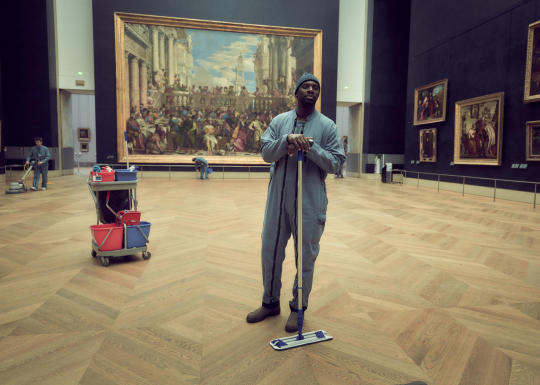
Granted, beyond this auction subplot, explorations of race and class are largely limited to individual interactions, but the show continues to refer back to (and implicitly comment on) its source material in ways that wink at the audience. An elderly, unassuming target of Diop’s schemes seems like an unlikely victim at first - Diop, though he acts in his own self-interest, usually displays a moral compass - until this victim reveals the colonial origins of her wealth, immediately re-contextualising the ethics of the situation, in a manner that Leblanc’s stories did not. (The show is yet to apply this lens to Arsène Lupin himself, who Diop treats with reverence, but that’s a secondary concern since Lupin is entirely fictional in-world).
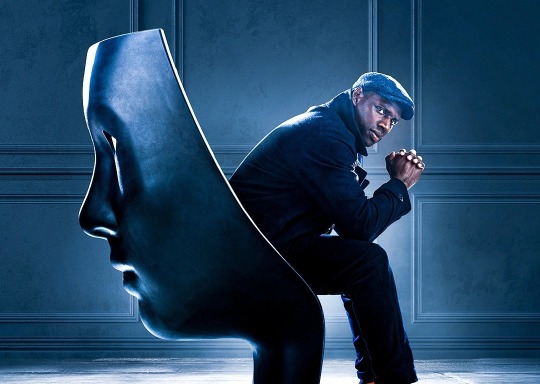
Barring some nagging structural problems - like cutting to flashbacks when things are getting exciting, or epilogues that feel ten minutes too long - Lupin mostly works. It plants a few personal seeds early on, which it keeps hinting at without fully addressing, but by the time its scattered elements come into focus, the show finally figures out how to weave them together, and delivers a mid-season cliffhanger that renders many of these flaws irrelevant.
Lupin manages to have fun even with an antiquated premise - the story of a suave con-man who charms his way through high-profile robberies - while adding just enough new spin on the concept to feel refreshing. Omar Sy may not have much to work with, but his alluring presence makes Assane Diop feel like a worthy successor to Arsène Lupin.
Lupin isn’t going to win César, BAFTA, or Emmy awards, or even turn heads for its ability to develop tertiary or even secondary plots or characters - that doesn’t really matter. You’re there to see a difficult hero be difficult and heroic - everyone else is there to be charmed, vexed, or eluded by them. Sy’s performance bounds off the screen, and is almost musical. He floats through scenes like he glides over the roofs and through the back alleys of Paris; he outmanoeuvres his foes with superior literary references and sheer athleticism. He is irresistible and also good at everything he tries, even kidnapping.
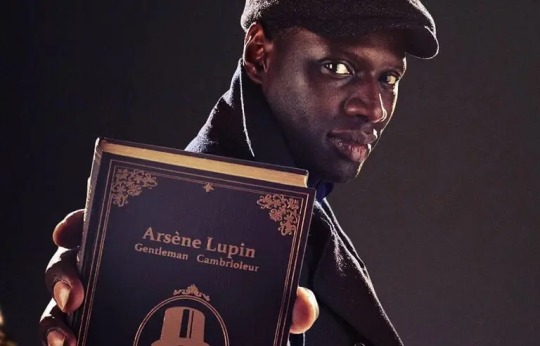
I would encourage anyone to watch Lupin for a fun care free ride. But the only caveat I would make is watch it in the original French.
If you don’t know French then put on the subtitles to understand (that’s what they are there for). The real crime is to watch this (or any film or television series) dubbed in a foreign language. It’s disrespectful to the actors and film makers and it’s silly because it’s comical to watch something dubbed over.
Please watch it in the original French.
Then go and read the books. You won’t regret it.
Thanks for your question.
#question#ask#lupin#omar sy#netflix#tv show#culture#personal#arsene lupin#japan#maurice leblanc#france#french#society#arts
49 notes
·
View notes
Photo
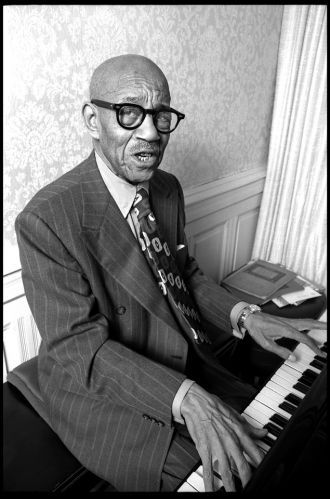
Today we remember the passing of Eubie Blake who died February 12, 1983 in Brooklyn, New York
James Hubert "Eubie" Blake, was an American composer, lyricist, and pianist of ragtime, jazz, and popular music. In 1921, he and his long-time collaborator Noble Sissle wrote Shuffle Along, one of the first Broadway musicals to be written and directed by African Americans. Blake's compositions included such hits as "Bandana Days", "Charleston Rag", "Love Will Find a Way", "Memories of You" and "I'm Just Wild About Harry". The 1978 Broadway musical Eubie! showcased his works.
Eubie Blake was born February 7, 1887, at 319 Forrest Street, in Baltimore, Maryland. Of the many children born to former slaves Emily "Emma" Johnstone and John Sumner Blake, he was the only one to survive childhood. John Sumner Blake was a stevedore on the Baltimore Docks.
Blake claimed in later life to have been born in 1883, but records published beginning in 2003—U.S. Census, military, and Social Security records and Blake's passport application and passport—uniformly give his birth year as 1887.
Blake's musical training began when he was four or five years old. While out shopping with his mother, he wandered into a music store, climbed on the bench of an organ, and started "foolin’ around". When his mother found him, the store manager said to her, "The child is a genius! It would be criminal to deprive him of the chance to make use of such a sublime, God-given talent." The Blakes purchased a pump organ for US$75.00, making payments of 25 cents a week. When Blake was seven, he received music lessons from a neighbor, Margaret Marshall, an organist for the Methodist church. At age 15, without his parents' knowledge, he began playing piano at Aggie Shelton's Baltimore bordello. Blake got his first big break in the music business in 1907, when the world champion boxer Joe Gans hired him to play the piano at Gans's Goldfield Hotel, the first "black and tan club" in Baltimore. Blake played at the Goldfield during the winters from 1907–1914, spending his summers playing clubs in Atlantic City. During this period, he also studied composition in Baltimore with Llewellyn Wilson.
According to Blake, he also worked the medicine show circuit and was employed by a Quaker doctor. He played a Melodeon strapped to the back of the medicine wagon. Blake stayed with the show only two weeks, however, because the doctor's religion didn't allow the serving of Sunday dinner.
Blake said he composed the melody of the "Charleston Rag" in 1899, when he would have been only 12 years old. It was not committed to paper, however, until 1915, when he learned to write musical notation.
In 1912, Blake began playing in vaudeville with James Reese Europe's Society Orchestra, which accompanied Vernon and Irene Castle's ballroom dance act. The band played ragtime music, which was still quite popular. Shortly after World War I, Blake joined forces with the performer Noble Sissle to form a vaudeville musical act, the Dixie Duo. After vaudeville, the pair began work on a musical revue, Shuffle Along, which incorporated songs they had written, and had a book written by F. E. Miller and Aubrey Lyles. When it premiered in June 1921, Shuffle Along became the first hit musical on Broadway written by and about African-Americans. The musical also introduced hit songs such as "I'm Just Wild About Harry" and "Love Will Find a Way." Rudolf Fisher insisted that Shuffle Along "had ruined his favorite places of African-American sociability in Harlem" due to the influx of white patrons. The reliance on "stereotypical black stage humor" and "the primitivist conventions of cabaret," in the words of Thomas Brothers, made the show a hit, running for 504 performances with 3 years of national tours.
Blake made his first recordings in 1917, for the Pathé record label and for Ampico piano rolls. In the 1920s he recorded for the Victor and Emerson labels among others.
In 1923, Blake made three films for Lee de Forest in de Forest's Phonofilm sound-on-film process: Noble Sissle and Eubie Blake, featuring their song "Affectionate Dan"; Sissle and Blake Sing Snappy Songs, featuring "Sons of Old Black Joe" and "My Swanee Home"; and Eubie Blake Plays His Fantasy on Swanee River, featuring Blake performing his "Fantasy on Swanee River". These films are preserved in the Maurice Zouary film collection in the Library of Congress collection. He also appeared in Warner Brothers' 1932 short film Pie, Pie Blackbird with the Nicholas Brothers, Nina Mae McKinney, and Noble Sissle. That same year he and his orchestra provided as well most of the music for the film Harlem Is Heaven.
In July 1910, Blake married Avis Elizabeth Cecelia Lee, proposing to her in a chauffeur-driven car he hired. Blake and Lee met around 1895, when both attended Primary School No. 2, at 200 East Street in Baltimore. In 1910, Blake brought his newlywed to Atlantic City, New Jersey, where he had already found employment at the Boathouse nightclub.
In 1938, Avis was diagnosed with tuberculosis. She died later that year, at the age of 58. Of his loss, Blake said, "In my life I never knew what it was to be alone. At first when Avis got sick, I thought she just had a cold, but when time passed and she didn’t get better, I made her go to a doctor and we found out she had TB … I suppose I knew from when we found out she had the TB, I understood that it was just a matter of time."
While serving as bandleader with the USO during World War II, he met Marion Grant Tyler, the widow of the violinist Willy Tyler. Blake and Tyler married in 1945. She was a performer and a businesswoman and became his valued business manager until her death in 1982. In 1946, Blake retired from performing and enrolled in New York University, where he studied the Schillinger System of music composition, graduating in two and a half years. He spent the next two decades using the Schillinger System to transcribe songs that he had memorized but had never written down.
In the 1970s and 1980s, public interest in Blake's music rekindled following the release of his 1969 retrospective album, The 86 Years of Eubie Blake.
Blake was a frequent guest of The Tonight Show Starring Johnny Carson and Merv Griffin. He was featured by leading conductors, such as Leonard Bernstein and Arthur Fiedler. In 1977 he played Will Williams in the Jeremy Kagan biographical film Scott Joplin. By 1975, he had been awarded honorary doctorates from Rutgers, the New England Conservatory, the University of Maryland, Morgan State University, Pratt Institute, Brooklyn College, and Dartmouth. On October 9, 1981, he received the Presidential Medal of Freedom, awarded by President Ronald Reagan.
Eubie!, a revue featuring the music of Blake, with lyrics by Noble Sissle, Andy Razaf, Johnny Brandon, F. E. Miller, and Jim Europe, opened on Broadway in 1978. The show was a hit at the Ambassador Theatre, where it ran for 439 performances. The production received three nominations for Tony Awards, including one for Blake's score. The show was filmed in 1981 with the original cast members, including Lesley Dockery, Gregory Hines and Maurice Hines. Blake performed with Gregory Hines on the television program Saturday Night Live on March 10, 1979.
Blake continued to play and record until his death, on February 12, 1983, in Brooklyn, five days after events celebrating his purported 100th birthday(which was actually his 96th birthday).
He was interred in Cypress Hills Cemetery in Brooklyn, New York. His headstone, engraved with the musical notation of "I'm Just Wild About Harry", was commissioned by the African Atlantic Genealogical Society. The bronze sculpture of Blake's bespectacled face was created by David Byer-Tyre, curator and director of the African American Museum and Center for Education and Applied Arts, in Hempstead, New York. The original inscription indicated his correct year of birth, but individuals close to him insisted that Blake be indulged and paid to have the inscription changed.
17 notes
·
View notes
Text
Roll call: Men in Uniform
It has recently come to my attention that I have a history of crushing on men in uniform. I mean, really, who doesn't love a man in uniform. So here's a fairly chronological list of my hotties of choice.
1. Lt. James Brody - seaQuest DSV/2032 (played by Edward Kerr)

Ok, this was like my first ever big crush. I was very young, and everyone assumed I was watching seaQuest for Jonathan Brandis, the more age appropriate 16 year old cutie, and Darwin the talking dolphin (ok, I loved Darwin). But Naw, I was all like, who's that guy who is damn near 30 and thus well over twice my age. He was cocky, sarcastic and had that perfect 90s hair and sharp jaw. He walked around in that blue jumpsuit uniform handling weapons and kicking ass. This it seems, is where this all started. Having looked him up now, he's totally a silver fox. So good on me for kicking off puberty with good tastes.

Honourable mention goes to Chief Miguel Ortiz (Marco Sanchez), who was also way too old for me and filled out that uniform in excellent fashion.
2. Captain Li Shang - Mulan (voiced by B.D. Wong)

This one is less about the uniform and more about the… lack of uniform during the training montage. I was still kinda young when this came out which aligns with the fact he's animated. Still, I knew i wanted him to make a (wo)man out of me even if I didn't fully understand what that entailed. I also just wanted to BE Mulan in general. And this man who can kick ass and command an army (but is also totally soft) was my man of choice.
3. Lt. Tom Paris - Star Trek Voyager (played by Robert Duncan McNeill)

Here's another pretty boy lieutenant who is a little too charming and funny for my own good. Even the actor admits the character started off as a bit of a cringy misogynist, but when my girl B'Elanna stole his heart he got whipped into shape and those 2 are my otp. Less fighty than the other entries on this list, and more pyjama style uniform clad, I'm still a total softie for this guy.
4. Medic Eugene "Doc" Roe - Band of Brothers (played by Shane Taylor)

Not as high up in the ranks, but still a take charge kind of guy (he really tells off some officers for not acting like adults at one point). He's just so. He's so. Look, the context of this one is a factual war drama, so it's not about the shoot 'em up fiction I otherwise go for. Eugene as portrayed in the mini series is complex and sensitive and his episode (Bastogne) broke my heart into a million pieces. It sent me into a year long obsession with this series and I still take comfort in it when things are really bad.

Honourable mention goes to almost literally every other notable character in the show. I'm not even kidding, ya know when your crushing spreads through a fandom like wildfire? There's a cast of literally hundreds and I fell in love with like half. But Major Richard Winters (Damian Lewis) and Captain Lewis Nixon (Ron Livingston) deserve special mention 'cuz they are yummy and I named my mice after them.
5. Colonel Horacio Carrillo - Narcos (played by Maurice Compte)

The man of the hour (according to tumblr I've been screaming about this man since March 2019). If you're reading this, you know Horacio. The walking dichotomy of moral righteousness and merciless killer. He's hard for his job and soft for his wife (that's canon people!) in a way that is so easy to spin a fantasy about. I want to be his wife who clearly can't do laundry properly 'cuz her husband's uniform keeps shrinking. I want to cook him dinner, sit on his lap, and brush lightly at his neck. I want the way he handles firearms with intention and skill to be how he handles me in the bedroom. I want… I just want.
Here are a few honourable mentions to round out the pretty:
Billy Russo - The Punisher (played by Ben Barnes)

Captain Steve Rogers - Captain America (played by Chris Evans)

Captain Benjamin Franklin "Hawkeye" Pierce - M*A*S*H (played by Alan Alda)

I don't think I could handle a military man in real life. Just not my jam. But give me a fictional man in uniform and I'll think of the fastest way to take him out of one.
So, who would you add to the list? Who are your favourites? I wanna know!
Tagging people 'cuz y'all don't play otherwise: @nicke0115 @1zashreena1 @heresathreebee @allthingsnarcos @xxidontwikeitxx @lettherebrelight @xxsteph-enrixx @fleurfatale89 @kid-from-new-zealand @chensingmachinee @criminal-cookies @allalngthewtchtower @ntlmundy @paniclana @ anyone else who wants to play
#horacio carrillo#seaquest#mulan#captain america#star trek voyager#narcos#mash#band of brothers#men in uniform
38 notes
·
View notes
Text
LGBT Book Recs
M/M version
Fantasy
Six of Crows and Crooked Kingdom by Leigh Bardugo: you have almost certainly heard of these but they really live up to the hype! ragtag band of criminals w/ varying degrees of tragic backstory/villainous intentions in fantasy Amsterdam plan a heist. a lot like Scott Lynch’s gentleman bastards series but with more realistic female characters and teenagers! mostly happy ending.
The Raven Boys by Maggie Stiefvater: probably you have already heard of this series also. I have only read the first two so the relationship has not happened yet and idk how it ends but its fun! a bunch of friends look for a dead welsh king in Virginia and fall in love and magic happens. very trippy and it makes fun of northern Virginia, and I live in northern Virginia, so I appreciate it. first novel has ambiguous ending.
A Darker Shade of Magic by VE Schwab: also part of a series so no relationship in the 1st one but I have been told its very cute. its about magicians traveling between alternate Londons and a victorian thief who likes knives, very fun. in my opinion characters are a lil flat. have not finished the series but first novel has ambiguous ending.
The Song of Achilles by Madeline Miller: incredible and showstopping! retelling of the Iliad where Achilles and Patroclus are in love. ALL about devotion. made me cry. very sad ending.
A Gentleman’s Guide to Vice and Virtue by Mackenzi Lee: very fun novel about 1700s boys taking a coming-of-age trip across Europe and accidentally getting into magical shenanigans! plot is frankly irrelevant. cute and fun, I read in a day. happy ending.
Elegy and Swansong by Vale Aida: excellent fantasy epic about spies from warring kingdoms. enemies to lovers to enemies to??? very intense w/ great plot twists and also fun f/f romance. happy ending after a Lot of tears.
Sci Fi
Cloud Atlas by David Mitchell: six separate stories in six different times, one of them told in letters a bi musician writes to his lover in the 1930s. really beautiful and good. six different endings but m/m ends very sadly.
They Both Die at the End by Adam Silvera: by the guy who wrote Aristotle and Dante discover the secrets of the universe I think! cute romance between two people who know they will die by the end of the day. fun, but also, you know what you’re signing up for. unhappy ending.
Cryptonomicon by Neal Stephenson: there are a couple side m/m romances which are great and also Alan Turing is in this!! the focus of the story is on codebreakers in WWII and computer geeks in the nineties. it’s very cool and mainly has gorgeous prose but sometimes its a lil obscene and, like, aggressively masculine. unhappy ending for m/m romance and lots of unhappy things in the middle, but mainly happy ending.
Classics
Maurice by EM Forster: literally my favorite novel I've read this year! written in 1912-1913 by a gay man who wanted to create a happy ending for gay people and dedicated to ‘a happier year’. was only published in the seventies. Incredible story about finding yourself and overcoming prejudices and how love makes you a better person. also super romantic. happy ending.
Honorable Mentions
The Left Hand of Darkness by Ursula K Le Guin: kind of a stretch to call this M/M. a very weird novel about humanity’s ambassador to a planet where everyone is non binary and only has a gender once every few months. but, the human protagonist does (sort of??) fall in love with a person he mostly thinks of as male and its very beautiful. unhappy ending. :(
A Separate Peace by John Knowles: dark academia vibes if you’re into that! not technically gay but the author was and a lot of gay people see themselves reflected in the main relationship. two boys develop an intense friendship/rivalry at their school with the shadow of WWII hanging over their world. lots of repression and guilt. very sad, haunting ending.
The Goldfinch by Donna Tartt: its very heavily implied that the protagonist is repressing feelings but nothing happens so. hard to describe what it’s about but it deals with the trauma of one event over a lifetime. very beautiful and sad, very long, makes me cry. ambiguous ending.
Heartstopper by Alice Oseman: fun webcomic! nerd and jock fall in love. ongoing I think but I cannot imagine it will end unhappily
The Secret History by Donna Tartt: there is 1 gay character who is fine ig? this book was not my style but its very dark academia. unhappy ending.
Les Miserables by Victor Hugo: as gay as it gets for the 1800s! amazing but super long, a couple of male characters are strongly implied to be in love. unhappy ending but u already knew that.
31 notes
·
View notes
Text
ES Spectre 2.0 Chapter 33
3 notes
·
View notes
Photo










movies watched in 2017
wonder woman - it was...fine? i liked it more than i’ve liked any other superhero movie, and the character driven bits (and some of the action sequences) kept my attention, but the longer fight sequences had me dozing off. these types of movies just aren’t my thing. as far as they go, though, this had more things for me to like than most of them do, and damn, gal gadot is charming af.
power rangers - the nostalgia movie boom seems to have skipped directly over my childhood. transformers was a bit before my time; power rangers was a bit after. but this movie looked entertaining enough for me to check it out, and...yeah, it was. obviously i didn’t get any of the references or have any idea of how it worked as an adaptation, but as a kids’ action flick, it had a fair bit of heart and some really good performances. god help me i am really starting to like elizabeth banks, which...if you’d told me this ten years ago, or even two years ago, i would’ve called you a damn dirty liar. is it me, though, or was there not a ton of actual action? not a complaint on my end, but i feel like it might have been for the people there for the nostalgia, or little kids there to watch the power rangers kick ass.
the perfect host - i loved this so much i immediately made my mother sit down and watch it. david hyde pierce is just the fucking greatest thing ever in this. it’s also pretty damn amusing to realize that this character is, really, just what would happen if niles crane just snapped one day. it’s a shitton of fun and i can’t recommend it enough.
war for the planet of the apes - really enjoyed it. as with rise, i regret not seeing it on the big screen; it looks awesome. andy serkis continues to be perfect. woody harrelson is disturbingly hot as amon goeth but with apes. i’m not proud of that last sentence but things are what they are. the kid playing nova (who looks startlingly like a small linda harrison) is an absolute star - no dialogue, acting opposite a bunch of dudes in mocap suits, and you believe every fucking second of her performance just from her face. it didn’t even OCCUR to me until the movie was over that, oh right, there weren’t actually apes there. which also says a lot about just how goddamn well-acted those apes are. i already mentioned andy serkis, but karin konoval deserves every bit as much credit and praise as maurice. it’s not my type of film - rise was the one from this trilogy that was more my cup of tea - but it’s so flawlessly done that i really loved it regardless.
wind river - look, i hate that guy who says “this film is important.” i don’t want to be that guy. but i have to be that guy. this film is important. you need to see it, and with the understanding that this is based on a true story in more than one respect. as the film takes care to point out, native women are the one demographic for whom missing persons records are not kept. this is loosely based one on person’s precise experience, yes, but it’s also the truth of thousands of native women no one ever looked for; women whose families never had the hope of closure, let alone justice. it’s the truth of countless women who are treated as objects by white men, who are raped, who are murdered and who are conveniently forgotten by law enforcement. in 1978, the supreme court declared that white people couldn’t be arrested and prosecuted by native people for crimes committed on native land, and it’s only as of 2015 that non-native men can now be prosecuted through the tribal courts for domestic assault against native women.
it’s also just excellent as a film. i do understand the potential issues with having the main character be a white guy, and “white savior” complaints wouldn’t be out of line. but i also have a feeling that the studio likely didn’t think this film would find an audience at all without a white lead, and they’d probably be correct. jeremy renner, for what it’s worth, does well with the character, and while we didn’t really need the liam-neeson-in-taken-esque turn at the top of the mountain, it’s about what you’d expect from taylor sheridan.
elizabeth olsen...can someone be declared a revelation twice? because every fucking SECOND of her performance is flawless. she won me over in martha marcy may marlene, and she’s grown so much as an artist since then. her character is also well-used near the end of the film to pull focus away from the white leads to refocus on the victim, and...fucking hell, that scene should’ve earned olsen an oscar nomination. it won’t; this film is criminally ignored. whether it’s because of the weinstein connection or just because hollywood has hit its quota of “minorities in america” films for this year and the white powers that be have lost interest, i couldn’t tell you.
the supporting cast, as well, is just spectacular. gil birmingam is the unsung backbone of this film and his performance is glorious, managing to be both passionate and understated. graham greene is impossible likable with amazing delivery. martin sensmeier doesn’t have much screentime, but the minutes he does have are absolutely gutting. teo briones has only a few scenes as jeremy renner’s half-native son, but he makes a real impression (and is the son of jon jon briones, which you have to love; i guess crazy talent runs in the family). and kelsey asbille is given precious few minutes to make us fall in love with a young woman we all know is doomed, and she manages easily, although the fact that she isn’t actually native gives me some pause with regard to her being cast. still, she does a great job with the role.
it looks incredible. taylor sheridan isn’t the person i would have expected to write or direct this one, but damned if he didn’t do some amazing work. this movie deserves to be seen.
personal shopper - if this movie doesn’t stop people from having that weird “kristen stewart can’t act” belief, i suppose nothing will. this is her best performance yet, and yes i did see clouds of sils maria; she’s somehow managed to outdo her work in that film. loved the movie for all its weirdness. never knew what the fuck was going to happen from one moment to the next and i appreciate that.
eyes of laura mars - i can’t tell if this movie was supposed to be taken seriously or not. i have that issue with faye dunaway movies a lot though.
amityville: the awakening - i’ve never liked an amityville movie - i tolerated the aughts remake because chloe moretz was a friend’s client and it had melissa george (not sure if i knew who rachel nichols was at the time but if i did, that would’ve been another bonus) - and i have not started now.
ingrid goes west - not really what i was expected tonally, particularly the ending. didn’t love it, didn’t dislike it. can i finally admit that i just don’t like aubrey plaza that much? o’shea jackson jr. is fucking adorable though.
serpent - i appreciated that there was actual effort put into this, but it was destined to be crap with the premise of “stuck in a tent with a snake for most of the film.” unless it’s ian mckellen and patrick stewart, you’re just NOT going to enjoy watching two people sit in one place and do little of anything for an hour and a half. (and really, you’re going to fight about your relationship NOW?? like, i’m a pretty petty person but damn.)
#movies watched in 2017#MWi2017: wonder woman#MWi2017: wind river#MWi2017: war for the planet of the apes#MWi2017: power rangers#MWi2017: personal shopper#MWi2017: eyes of laura mars#MWi2017: the perfect host#horror movies: the perfect host#MWi2017: amityville the awakening#horror movies: amityville the awakening#MWi2017: ingrid goes west#horror movies#MWi2017: serpent#horror movies: serpent
13 notes
·
View notes
Text
Dec. 4, 2019: Columns
A cook book including a couple of recipes for life…
By KEN WELBORN
Record Publisher
Through the good offices of Ben Lane of Wilkesboro, I now have in my possession a fascinating relic from 1946.
No, not Ben, but a fairly well preserved copy of the North Wilkesboro Woman's Club Cook Book. The Woman's Club was established in 1920 and has been a fixture in North Wilkesboro ever since. The cook book had recipes from the members and I am sure some others as well. For me, having grown up on North Wilkesboro in the 50’s, many of the names were familiar.
Some of the ladies who had recipes in the book were folks I delivered the Greensboro Daily News to as an 11-year-old boy. Of them, one of my favorites was Mrs. Fred Hethcock. The Hethcock's were a retired couple who lived on 6th Street in North Wilkesboro, just down the hill a bit and across the street from one of my other favorites, Carl W. Steele. When I would go by on Saturdays to collect my 45 cents for the previous week’s paper, Mrs. Hethcock would always invite me into her kitchen and give me a glass of sweet tea—a treat like no other. She would let me sit at her table and I remember she put lots of lemon in the tea the way I liked it. Her recipe in the cook book was for shrimp sauce.
Another name I saw in the cook book was Mrs. William Marlow, Mary. I was fortunate enough to get to know Bill and Mary Marlow through my association with the Lions Club of North Wilkesboro, and later, as a neighbor down the street from them. They were just the kind of people you are thankful to have known and I can remember my daughter, Jordan, remarking about Mrs. Marlow's wonderful cookies, and the fact that the Marlow's always bought whatever stuff the school system had the kids out selling without complaint. Mary Marlow had her recipe for Dream Bars in the cook book, which I have personally been lucky enough to have enjoyed. I have also had many opportunities to speak with Mary, who had an accent I won't try to describe, except to say it was a wonderful Southern voice which was perfect for the stately lady she was.
There were lots of other familiar names in the cook book, Mrs. W.K. Sturdivant, Madge; Mrs. A.B. Johnston, Ruby; Mrs. Hoyle Hutchens, Virginia; Mrs. Maurice Walsh, Sina; Mrs. Jack Brame, Virginia; just to name a few.
However, it is the two nuggets in the boxes I want to call your attention to. They both caught me completely off guard and I was very pleased to see them. The first is just past the title page and is called "Club Sandwiches," and the second was in the Pickles and Preserves section and is entitled "How to Preserve A Husband."
These gals obviously knew their way around life, as well as the kitchen.
Club Sandwiches
A very special recipe from page 2 of the 1946 North Wilkesboro Woman's Club Cook Book
Take 80 club women, well seasoned by the experience of living--these should be firm, yet tender. Mix well with equal parts of faith and hope. Sprinkle in the spirit of service and add a dash of pep. Stir in a heaping cup of tolerance, and let stand until all arguments have dissolved and the mixture has cooled. Spread between two slices of courage with all crusts removed and wrap in a cloth dampened with the milk of human kindness. This recipe will serve the entire community.
How To Preserve A Husband
Interestingly enough, this piece was in the "Pickles and Preserves" section of the cook book.
Be careful in your selection. Don't choose too young, and take only such as have been reared in good moral atmosphere. Do not go to market for him, as the best are always brought to your door. When once decided upon and selected, let that part remain forever settled and give your entire thought to the preparation for domestic use. Some insist in keeping them in a pickle, while others are constantly getting them in hot water. This only makes them sour, hard and sometimes bitter. Even poor varieties may be made sweet, tender and good by garnishing them with patience, well sweetened with smiles, flavored with kisses to taste. Then wrap them in a mantle of charity; keep warm with a steady fire of domestic devotion, and serve with peaches and cream. When thus prepared, they will keep for years.
‘In A World Where You Can Be Anything, Be Kind’
By HEATHER DEAN
Record Reporter
Note: This was not my planned topic this week but I have many friends either struggling with the loss, or caregivers dealing with serious ailments of loved ones, and wanted to rerun this column from a few years back to remind us all to be kind, and be present.
Tis the season… All the hustle and bustle, rushing here and there, making sure everything is perfect for the gatherings that are getting ready to happen. We sing holly jolly songs, take the kids to see Santa, make plans to see family out of town, and eat enough goodies to stuff a reindeer. We giggle and snort about tacky sweater parties, and maybe we roll our eyes at those that don't share the enthusiasm of the holiday; maybe even muttering "Scrooge" or "Grinch" under our breath.
But…maybe they have lost their joy for a very valid reason. It's hard sometimes to see the melancholy, past all the glitter and lights. For many people, this is a horrid time of year; reflecting on who won't be home for holidays, especially if it’s the first one without them.
I would like to share with you a song that my friend Brian Brown penned about his daughter, who was the poster child for Christmas, if ever there was one. .She was named "Bria", after her father, was the only daughter, and the baby of the family. Bria suffered from asthma, but that never stopped her from enjoying all things Christmas- singing, playing in the snow, all the fun kid stuff. It was after all, her favorite holiday.
Bria died in February 2015, after suffering an acute asthma attack at the age of 14. Christmas was never the same for Brian and his wife, or the rest of the family.
My Christmas is Gone
My Christmas is Gone
Hard to see the blinking lights
Tough to see the twinkling stars
Hearing them bells ring
just opens up all the scars
Happy families holding hands
humming holiday tunes
I'm Scrooge in the corner
wishing it was June
CHORUS
Please don't happy me this
Please don't merry me that
Cause my Christmas is gone
It ain't coming back
Even if Santa's sleigh landed right here
I'd step right over them reindeer tracks he knows my Christmas is gone...it ain't coming back
Yeah my Christmas is gone
It ain't coming back
This was her time of year
Loved decorating the tree
Singing those old Christmas songs; come adore on bended knee.
Everytime the snow fell
Bundling up to go outside
Fingers went numb
From the snowball fights
CHORUS
I got no more silent nights
No more decking the halls
Every day's now to be the same
Behind these four blank walls
There might be joy to the world
It just hasn't found me
My soul's laid bare
As Charlie Brown's Christmas tree
CHORUS
Brian wrote this song, "to find a way out of the dark pit of self pity while still embracing the sadness that is so important for healing.”
So while you’re out there, take a moment to make eye contact with people.
Be aware.
Try to be the comfort in another’s holiday grief.
If you are the one grieving, know you are not alone.
HOTLINE
800-273-TALK (8255)
Israel - The U.S. security net
By AMBASSADOR EARL COX and KATHLEEN COX
Special to The Record
Those who wrongly consider Israel as "illegal occupiers" of land deeded to her by God Himself, are woefully failing to accept the truth which, in plain language, means a Middle East without Israel would be nothing more than a region filled with overwhelming violence and chaos.
In 2005, Israel unilaterally withdrew from the Gaza Strip hoping to receive peace in return. It did not happen. Prior to 2005, Israel vacated a significant portion of Judea and Samaria leaving the West Bank, which includes the Golan Heights, in the hands of Palestinian Arabs who, with the support of Iran, Turkey and North Korea, turned the area into a giant launching pad for missiles and terrorist attacks threatening Israel and every pro-US Arab regime in the region.
In 1967, Israel seized the strategically significant Golan Heights from Syria in a defensive war - a war which she did not instigate. Israel was again attacked by her hostile Arab neighbors without any provocation whatsoever. In only six days and against seemingly impossible odds, Israel emerged the victor. She successfully defended her land and her citizens and even gained land in the process.
Israel's presence on the mountain tops and ridges and in the Golan Heights serves as a sort of security policy for Jordan and others who are friendly to the United States. Having Israeli troops in the Golan is also a kind of security safety net for the U.S. negating the need to send U.S. troops to patrol the Golan Heights as unrest and war rage in Syria, as Iran continues to spread it tentacles in Lebanon and Syria with ambitions to control the land all the way to the Mediterranean Sea, as Turkey's president sets his sights on Syria with expansionist intentions, and as Russia continues to expand its presence in Syria, Lebanon and any other place in the Middle East where there is the slightest opening or where leadership is weak.
Controlling the Golan Heights is important not only to Israel but also to the entire world. Damascus, Syria is less than 50 miles from the Golan. In the Middle East, Damascus is the center for the proliferation of global terrorism and drug trafficking. You might remember that Damascus welcomed Nazi war criminals who fled Germany and Poland following WWII.
Keeping Israel in control of the Golan Heights is essential to maintaining stability in the region. Anyone who thinks otherwise is simply not thinking. Israel's presence is one of deterrence from which the United States, and the world in general, greatly benefits.
It’s a Carolinas Heritage Christmas
By CARL WHITE
Life in the Carolinas
We have been busy elves working on our new Christmas Special.
The 2019 theme is A Carolinas Heritage Christmas. We have been filming on location in historic Gold Hill.
The people of Gold Hill kick off the Holiday celebrations with an annual event they call “The Lighting of the Fall Fires.” The event is always the Saturday before Thanksgiving and is held rain or shine. This year it rained, but that did not seem to dampen the sprits of the attendees.
When people arrive, they exchange their tickets for a bag of gold nuggets (painted gold that is). Once they have their nuggets in hand, they board a trolley that takes guests to their choice of three stops. The nuggets can be exchanged for various food offerings throughout the village.
I met a fellow at the Brunswick Stew station. He so loved the stew that he used three nuggets for three servings. He said it was the best he had ever eaten. Then we met a lady at the chicken and dumpling station who was in line for the second time. She said it brought back great memories.
The village was filled with all sorts of music for people to enjoy as they went from place to place. It was a friendly event with all the charm you might imagine.
Vivian Hopkins at the E. H. Montgomery General Store provided great assistance in our production as well as sharing a look into life in the village. The Montgomery is a popular location during the Holidays and throughout the year with weekly Friday Night Bluegrass gatherings.
There were three fires. We were on location with three cameras at the largest fire when it was set ablaze. As the fire was set, I chatted with Darrius Hedrick and John Yelton who have been part of the event from the very beginning,19 years ago. Darrius said that the event transitions us into the Holiday season. John, now in his 90’s, said we need to be thinking about what we can be thankful for.
We were enjoying our chat as the fire grew, so much so that Darrius looked at me and said with a calm smile, “We better move back a bit before my pants melt.” I suppose I was so caught up in the moment that I did not notice that the ground around us was starting to steam from the mist in the air and the growing heat of the blaze.
It was great talking with Darrius and John as they were both involved in making the Gold Hill Village what it is today. Naturally, there are many people involved; however, at that moment I became very aware that “The Lighting of the Fall Fires” is much more than an event to raise money and awareness for the Gold Hill Historic Preservation Society; it is a celebration of the fact that Gold Hill has significant Carolina history and, most importantly, it stands today as the Historic Gold Hill Village and provides a glimpse into our past and comfort for our future.
We will be back in Gold Hill for more filming during the “Christmas in the Village” celebration which is always the first full weekend in December.
Happy Holidays and Merry Christmas Season! Let’s make some new friends and traditions this year and if we do maybe depression will not be in our stockings during the upcoming months.
Carl White is the executive producer and host of the award-winning syndicated TV show Carl White’s Life In the Carolinas. The weekly show is now in its eleventh year of syndication. For more on the show visit www.lifeinthecarolinas.com and join the free weekly email list. It’s a great way to keep up with the show and things going on in the Carolinas. You can email Carl White at [email protected].
0 notes
Text
World War I (Part 7): July 25th-28th
Saturday, July 25th, 1914
Serbia presented their response 48hrs (almost to the minute) after they'd received Austria's note, and they agreed outright to only half of the demands. Gieslingen had been instructed to find this unacceptable, and broke off diplomatic relations immediately. His bags had already been packed, and within half an hour he was on a train; less than 10min later that train crossed the Hungarian border.
Serbia and Austria announced that they were mobilizing (Serbia had begun hours earlier). Russia announced a Period Preparatory to War (a pre-mobilization) – army units on summer manouevres were recalled to barracks; officers on leave were recalled; Kazan, Kiev, Moscow and Odessa's military districts were ordered to get ready. (These were the districts closest to Austria-Hungary.)
Secret preparations were also made in St. Petersburg, Vilna, and Warsaw's military districts. It was important to keep this secret, as these districts threatened Germany directly.
Serbia's response was “the most brilliant example of diplomatic skill I have ever known,” as an annoyed Berchtold called it. It was very long, and its tone was respectful and almost submissive. The response said that Serbia could only agree unconditionally to some of the demands, and had questions about the others – not refusals.
They were only unable the demand about Austria's direct involvement in the assassination investigation: “The Royal Government cannot accept such an arrangement, as it would be a violation of the Constitution and the law of criminal procedure. Nevertheless, in concrete cases communications as to the results of the investigation in question might be given to the Austro-Hungarian agents.”
Part of the reason Serbia didn't give in to Austria was that they were receiving false information from Russia. France's ambassador to St. Petersburg, Maurice Paléologue, was manipulating Serbia's ambassador to Russia, and telling him that Russia wanted Serbia to stand firm. In fact, the Tsar didn't actually want a major war, because the social & economic problems it would cause might lead to revolution. (They did.)
Foreign Minister Sergei Sazonov was of the same mind. Both he and the tsar believed that Russia was still years away from being fully ready to fight Germany. They were expanding their army, and building a huge network of railways with France's help, but these projects wouldn't be ready until 1917 at least. However, Sazonov still believed that Germany was the mastermind behind Austria's actions, and that Germany was determined to begin a preventive war. Russia could only protect itself if it reacted both forcefully and quickly.
Another part of the reason was that Nikola Pasic had prepared the response, and he definitely needed to conceal his actions from both Serbia and Austria. Austria couldn't be allowed to know how much he'd known about the plot, and how little he'd done to stop it; Serbia couldn't be allowed to know that he had tried to stop it (this could have been even worse for him). And because he was in the middle of an election, he had to show his willingness to stand up to Austria. It was a terribly complicated situation for him, and one that was never going to end well.
The Austrian mobilization plan put 20 divisions (about 300,000 soldiers) on the Serbian border, a few miles from Belgrade. This left 28 divisions for Galicia (to the north), where they would have to fight if Russia entered the war.
This worried the German general staff very much. Because Conrad had deployed so many troops to Serbia, they wouldn't be supporting Germany against Russia in the east as much as he'd led them to believe. Conrad did this because he still believed that Russia was going to stay out of it, and he could thrash the Serbs like he'd been wanting to for years.
Russia's Period Prepatory to War made it so they could get their troops more quickly into action if/when they mobilized. But these “preparatory” steps weren't minor ones. 1.1 million troops were gathered in those four districts near Austria-Hungary.
Serbia's mobilization was based on the belief that Austria was going to attack within the next few days (this was incorrect). Because of this belief, they also began moving the government out of Belgrade (so that it was away from the border).
A hundred years ago, mobilization meant not going to war, but not too far off it. It was a huge affair, but differed between nations, and this caused problems if you wanted to imply something through mobilization.
In Russia, reserves were called up, and this was incredibly difficult in a nation where there were still few railways, and some men had to travel hundreds of miles to report for duty. Divisions and armies were organized into their assigned positions, and prepared to advance or face an enemy advance. Russia's mobilization plan didn't involve an invasion of enemy territory – even after mobilization, they could still be flexible. Their armies could be kept in the country without getting them into a terrible muddle.
Austria-Hungary's transport problems weren't as bad as Russia's, and they also had some flexibility. Conrad had divided the forces into three groups – one for Serbia and one for Galicia, and the third group to go either direction as it was needed. He sent it to Serbia, which is how he was able to muster 20 divisions for that front.
Germany was the most modern European country, and they could mobilize far more quickly than either Austria or Russia. France and Russia had first become allies in 1894, and ever since then, Germany's war planners had been convinced that war with one would mean war with both, and their survival depended on speed.
They assumed that they couldn't win a long drawn-out war against both France and Russia, so their mobilization plan was focused on one objective – to knock France out of the war in 6 weeks at most, before Russia was able to organize a major attack. So Germany's mobilization plan included a drive on Paris, i.e. an invasion of enemy territory, which would be logistically impossible to stop once it had started. So for Germany, mobilization meant war.
However, even apart from that, mobilization was always a threatening move, even if it only done by the smallest great European power against a tiny nation. You couldn't expect no response from anyone.
Field Marshal Radomir Putnik, chief of the Serbian army staff, was actually on the way home from a holiday, and when Austria began mobilizing, he was in the Austrian province of Bohemia. The Budapest authorities detained him, but the Emperor insisted that he be allowed to return to Belgrade on a special train provided for his use.
Sunday, July 26th, 1914
Mobilization continued on the 26th. Austria and Russia were trying to send out specific implications with their mobilization and hoping the others would understand them.
There were two reasons for Austria's mobilization. The first was practical – to begin the process that would take 16 days to get the army ready. The second was to signal that the situation was serious, and that if France and Britain wanted to avoid it becoming more than just another localized Balkan problem, they'd better restrain Russia.
France mattered because Russia would be reluctant (or even unwilling) to fight Austria-Hungary and Germany without them. Britain mattered because even though its army was small, it was allied with France & Russia (albeit loosely & informally), and it was certain to want to avoid a big war.
But this second reason was not going to work. Poincaré was still at sea, and Germany was trying to jam radio transmissions – so he wasn't going to get the message! Sir Edward Grey (Britain's Foreign Secretary) felt unable to do anything, because of the divisions in the government. Grey told the cabinet that German dominance in Europe was the greatest threat to British security, and that if Austria & Russia went to war, leading to war between Germany & France, they would have to side with France. But this didn't mean he wanted war. At any rate, France and Britain weren't going to be doing any restraining of Russia.
Grey told the German ambassador in London, Prince Karl Lichnowsky, of his concerns, and suggested that Britain, France, Germany and Italy hold a conference to deal with the crisis. Lichnowsky's position in London allowed him to see that Britain would almost certainly oppose Germany if war happened, and he agreed with the suggestion. He telegraphed Berlin, saying “I would like to call your attention to the significance of Grey's proposal of a mediation à quatre between Austria and Russia. I see in it the only possibility of avoiding a world war, in which for us there would be everything to lose and nothing to gain.”
Russia's reason for the Period Preparatory to War was to make Austria reconsider. Sazonov told the Tsar that they faced not just a dispute over Serbia, but “a question of the balance of power in Europe, which is seriously threatened.”
They also wanted to make sure Germany didn't feel threatened (hence the secret preparations in those three districts), but German intelligence soon found out that Russia was doing more than they were saying. It was getting very close to an undeclared mobilization. But when the German military attaché in St. Petersburg made enquiries, he was lied to. Germany grew more & more nervous as they learned about how much Russia was actually doing, and as Russia continued to pretend to them. They became less willing to accept their assurances of goodwill.
Maurice Paléologue knew of Russia's actual actions, but he didn't tell France, or remind Russia that under the terms of their Entente they had a responsibility to let them know in advance of their mobilization plans. He seemed to have not wanted to do anything that might restrain the Russians or discourage them from acting.
Hermann von Tschirschky was doing the same thing in Vienna – encouraging the Austrians without doing so openly.
Prince Heinrich of Prussia (the kaiser's younger brother) was in England, and today he was at the annual yacht races at Cowes. He had lunch with his first cousin, King George I. After lunch, he sent a message to Berlin, saying that “Georgie” had given him the impression that London wanted to stay neutral. George I had little say in British foreign policy, though.
Ambassador Lichnowsky's warnings contradicted what the Prince, a naval officer who had a reputation for being an unreliable reporter, was saying. But the German foreign ministry was more inclined to believe the prince over Lichnowsky, whom they had never taken seriously, seing him as a gullible English-lover who had got his position because he was friends with the kaiser.
So, to sum up: Austria was mobilizing, and sending signals that no-one was receiving. Russia was in the first stages of mobilizing but pretending not to be, and Germany was beginning to feel directly threatened. France's ambassador was urging on the Russians and Serbians, and Germany's ambassador was urging on the Austrians. Britain was sending out confusing messages, and Germany & France were basically leaderless for the time being.
Monday, July 27th, 1914
On Monday, the Austro-Hungarian council of ministers met secretly and voted to declare war on Serbia, which was quite a strange decision, as they were still over two weeks away from full mobilization. Even Conrad questioned the decision. But Berchtold wanted to get things going properly before Germany softened, or Britain's mediation proposals could take effect, and he persuaded Conrad to agree. The declaration of war would be announced the next day.
It required the approval of the Emperor. But when Berchtold & Conrad went to see him, he was reluctant to agree, so they told him lies about attacks from Serbia (all that had happened was a brief exchange of gunfire at a small border town). So Franz Joseph signed, trembling so badly as he prepared to do so that he had trouble putting on his glasses.
Edward Grey read Serbia's response to Austria's note and found it promising. He met again with Lichnowsky, and repeated his suggestion of a four-way conference. Lichnowsky again passed on the message to Germany, and urged that they agree.
Chancellor Hollweg didn't like the proposal, but he didn't want to offend Britain. So he explained to Austria's ambassador in Berlin “in the most decided way” that the German government didn't want anything to do with the suggestion, “that on the contrary it advises to disregard them, but that it must pass them on to satisfy the English.”
The conference certainly wouldn't go the way Germany and Austria wanted it to. France and Italy would have little sympathy for Austria's complaints, and Britain probably wouldn't do anything to help them & thus damage their relationship with France and Russia. And at best, it would lead to a debate over the wording of the note and Serbia's response, nothing would happen, and Serbia would avoid the consequences yet again.
Also, mobilization was expensive, and they didn't want to be mobilizing year after year with nothing to show for it. Conrad had never received enough money to keep the army up-to-date with equipment or technology, and they'd mobilized for both Balkan Wars, wasting a lot of money.
On Monday afternoon, the kaiser returned home. Chancellor Bethmann and Foreign Minister Gottlieb von Jagow were not pleased with this, worrying that he would interfere. However, they weren't a good pair to be leading Germany through the crisis, anyway.
Bethmann was a career civil servant, and he had become Chancellor 5yrs ago, without any experience in foreign affairs. Wilhelm disliked him – at one point, he complained, “He was always lecturing me, and pretends to know everything.” Bethmann, like many Germans, was terrified by Germany's position among enemies, and believed that they would only get more vulnerable in future.
Jagow was a frail hypochondriac. He'd used his elder brother's connections to get himself into the foreign service, and then to get a series of cosy assignments in Rome and other places. Eventually, he was recalled back to Germany to lead the foreign ministry, despite his attempts to avoid it. He said despairingly, “Nothing has helped. I am appointed.”
Late that night, Austria sent word to Germany of their decision to declare war. Bethmann and Jagow weren't shocked – they'd been urging Austria to do this right from the start. They didn't make any effort to inform the kaiser: it was what he wanted as well, after all.
Tuesday, July 28th, 1914
Despite the disability to his left arm, Wilhelm had become a skilled horseman as a boy. He claimed to be more comfortable in a saddle than in a normal seat, and so he had a saddle-chair in his office. This was where he was sitting to catch up on what had happened while he was away.
He read the most recent telegram from Lichnowsky, which quoted Grey in saying that an Austrian attack on Serbia would have disastrous consequences, but that Serbia's response to the note seemed to provide a starting-point for negotiations.
Next, he read Serbia's response. Wilhelm tended to agree with the last opinion he'd heard or read, and this may have influenced him to have a similar response to Grey. “The was more than one could have expected. A great moral victory for Vienna; but with it every reason for war drops away, and Giesl might have remained quietly in Belgrade. On this strength of this I should never have ordered mobilization!”
Wilhelm immediately sent a handwritten note to Jagow, declaring the Serbian response “a capitulation of the most humiliating kind,” so that “every cause for war falls to the ground!” He ordered Jagow to send a message to Vienna in his name, informing them that there was now a basis for using mediation to resolve the crisis, and that he was prepared to help.
He also added an idea that his military staff had suggested to him earlier that day. It would come to be called the “Stop-in-Belgrade” proposal. Wilhelm believed that the Serbs couldn't be trusted, because they were “Orientals, therefore liars, tricksters and masters of evasion.” So Austria should send the army across the border to occupy Belgrade, but no further. This would give them an advantage in the mediation talks, and it was similar to what had ended the Franco-Prussian War (the German armies had stayed in France until their terms were met, and then paraded through Paris' streets and returned home). Soon Grey would be suggesting this as well.
But the kaiser still didn't know that Austria was about to declare war – he assumed that it would be a couple of weeks away, if at all. Bethmann and Jagow prepared the message as ordered, but delayed 12hrs in sending it, so that Vienna would receive it after they'd declared war.
Wilhelm was, they believed, too unpredictable and mercurial. It was a fair judgement – the kaiser was arrogant in a childish way, often reversed his decisions, and even broke down in the middle of crises (which he had done in 1908, 1911, and early 1914, when he'd had to be talked out of abdicating the throne). They had a better understanding of the situation than he did (although mostly because they'd been keeping information from him), and they probably thought they were doing what he would want anyway.
In the middle of the afternoon, Austria declared war. Berchtold knew that Serbia's government had withdrawn to the interior, but he didn't know how to make contact with them. He sent an uncoded telegram (in French) to Pasic through the Serbian army headquarters, informing him that a state of war now existed between the two countries. But not long afterwards, he sent another telegram (with the same wording) to Pasic through the Serbian foreign minister. They went through Romania and reached Pasic separately.
Pasic was at lunch in a provincial hotel when the first telegram reached him. He read it, stood up, and addressed the room: “Austria has declared war on us. Our cause is just. God will help us.” The second telegram arrived not long afterwards, and Pasic got suspicious, thinking that it could be a hoax. He asked the German ambassador, but the ambassador knew nothing about any declaration of war, as he hadn't been informed in advance either.
However, it didn't take long to confirm that the telegrams were indeed genuine. The news set off anti-Serbian demonstrations in Vienna and Berlin. Conrad began shelling Belgrade from across the border in Bosnia, but the Austrian troops didn't move.
After he learned what had happened, Wilhelm met with Berchtold and spoke to him. Berchtold was visibly unhappy after that meeting, and quickly changed his course. He wrote a long telegram to Tschirschky (German ambassador in Vienna) in which he blamed Austria for Germany's actions. He claimed that the Austro-Hungarian government “has left us in the dark concerning its intentions, despite repeated interrogations” and that the declaration of war had put them in “an extraordinarily difficult position” that could cause them to “incur the odium of having been responsible for a world war.” He told Tschirschky to encourage the Austrians to respond positively to the Stop-in-Belgrade proposal, which Grey was now backing.
Some of this was true – Austria had definitely concealed information from Germany. But much of it was just blame-shifting, and Tschirschky was confused and surprised – after all, he'd been told off earlier for urging caution. Berchtold had the same reaction, but even more so – Germany had been urging them on for three weeks now, and he was finally taking action – and now they were saying to stop?
Russia's ambassador to Austria had been waiting since the previous day to meet with Berchtold, and now he was able to. But the meeting just ended in confusion and miscommunication. He wanted to discuss several ideas that had been passing through the various capitals, including Grey's suggestion that Serbia's response be used as a starting point for negotiations; and Sazonov's suggestion that he and Austria's ambassador to St. Petersburg review Austria's note, and see if it could be changed enough so that Serbia would accept it.
But everyone was distracted and exhausted, and Berchtold & the ambassador lost track of what they were talking about. When the meeting was over, Berchtold thought he'd told him that he wouldn't negotiate with Serbia, but he would with Russia. The ambassador thought he'd said that he wouldn't negotiate with Russia at all, and he told Sazonov that.
Austria's declaration of war had convinced Sazonov that they were mobilizing to destroy Serbia, not just to emphasize its grievances (which was pretty much the truth). Russia had sped up its preparations for war, and Sazonov now believed that Austria was refusing to negotiate with them, and so war was even more likely to be inevitable.
France's ambassador Paléologue was telling Sazonov that France wanted Russia to stand firm; Germany's ambassador Friedrich von Pourtalès was telling him that if Russia kept on with their military preparations, Germany would have to mobilize as well. Serbia's ambassador was reporting that Austria was bombing Belgrade, and Russia's generals were saying that Germany was preparing for war, and they had to do the same.
Paléologue, though, was giving out false information again. The French Prime Minister, René Viviani, was on the ship returning from St. Petersburg with Poincaré, and he'd sent Paléologue a telegram instructing him to do everything possible to resolve the crisis without war.
Paléologue was notoriously excitable, and very pessimistic, seeing the worst in every situation. Because of this, he was widely distrusted (he'd got this position because he was friends with Poincaré. Even before July, he'd been warning that a European war was inevitable before the year was out. He worried that if France didn't show that they'd fully support Russia, then Russia would abandon the alliance with them, and try to ally with Germany. He believed he was protecting France's security.
#book: a world undone#history#military history#ww1#franco-prussian war#serbia#austria-hungary#austria#hungary#germany#france#galicia#britain#stop-in-belgrade
1 note
·
View note
Text
Shoreham victims mother says she feels let down not guilty verdicts
The mother of the youngest Shoreham Airshow crash victim said she feels ‘let down’ by the justice system after the pilot was cleared of manslaughter charges.
A jury found Andrew Hill not guilty of the 11 counts over the 2015 crash.
An official Government report into the accident, published in 2017, found the crash was caused by pilot error when Mr Hill flew too low and too slowly while carrying out the bent loop manoeuvre, and could have been avoided.
Daniele Polito was killed in the Shoreham air disaster. His mother, Leslye, is angry that the pilot has walked free from court
Pilot Andy Hill was today found not guilty of gross negligence manslaughter by a jury
Leslye Polito, who lost her son Daniele in the crash, said: ‘I feel extremely disappointed, very upset and primarily let down by the justice system when someone who has clearly made some very bad errors of judgment is allowed to walk free.’
The 23-year-old builder left behind two young children, one of whom he never had chance to meet.
He had left work early and was travelling to the beach with a colleague when flames engulfed their car after the plane crashed on the A27.
Mrs Polito, 66, of Goring in West Sussex, said: ‘The whole fact that it was avoidable, that was the hardest bit to consider and process. It’s still the hardest bit.’
‘Bye mum, love you’ were the last words Mrs Polito heard her youngest son say, as she had so many times before when he left the house.
That day he had been at work with 24-year-old Matt Jones, who also died in the crash. Their boss had let them leave early to enjoy the hot weather and they were driving to the beach in Mr Jones’s car.
She and her husband Nino were at a party when they heard about the crash and discussed it with guests but thought nothing more of it – no-one knew at that stage that anyone had died.
Daniele was described as ‘full of life, a joker and extremely family orientated’
They thought Daniele was still at work. But both he and Mr Jones were killed, while their boss had been driving a few cars behind them and saw the horror unfold.
Mrs Polito said: ‘If there’s anything good about it, which there isn’t, it’s that it was all instant.
‘It helps to know that. One just learns to live each day as it comes and take every day and live as normally as one can.
‘Every birthday, Christmas, Father’s Day – it doesn’t matter what they are, they are all equally as difficult as the anniversary (of the incident).’
The parents of Matthew Grimstone said they had received ‘no justice’ over the death of their son. They called for the end of dangerous air shows
Daniele was never able to meet his youngest son, Jaxson, who was born after he died, Mrs Polito said.
Although they have ‘two lovely little boys to carry on his name’, she said this was ‘bittersweet’, adding: ‘We have that but we don’t have him and he won’t get to see either of them grow up.
‘We will make sure they know all about their daddy. We talk about Daniele all the time, every day.
‘He was full of life, a joker, he was extremely family orientated. Everything to him was family, I think due to his Italian heritage. He wanted to live life to the full.’
In a statement issued via Sussex Police, Sue and Phil Grimstone, whose son Matthew died in the crash, said: ‘Obviously we are devastated the jury have reached this verdict.
‘There seems to be no justice for our son Matthew and all 11 men who died in such tragic circumstances.
‘We were always told by the police that to prove guilty due to ‘gross negligence’ the bar was set very high. Despite having compelling evidence from the cockpit footage and expert witnesses, it was not enough.’
The family had no idea that Daniele had been caught up in the disaster when they heard of it
They added: ‘Why are we allowing any form of aerobatics to be performed when there is now doubt concerning any pilot’s ability to avoid becoming cognitively impaired from the normal G forces that will be experienced during an aerobatic display?
‘Matthew had no interest in air shows, he could not have cared less. Knowing he died because an aircraft was being flown for fun, for the entertainment of others makes it even harder to bear.
‘It has to be remembered that this is a leisure industry, it is not a necessity.’
A piece of the wreckage is winched from the scene after the Shoreham air crash
Other families of the Shoreham Airshow crash victims have called for a ‘thorough and frank’ investigation to halt the grim death toll at displays across England.
Sarah Stewart, partner at law firm Stewarts, has represented most of the relatives of the 11 men killed at the 2015 show in West Sussex.
Four years on, they have settled compensation claims for undisclosed sums of money but are still waiting for answers.
Ms Stewart said the criminal trial of pilot Andrew Hill for manslaughter by gross negligence had put inquests ‘on hold’.
Its conclusion means that West Sussex Coroner Penelope Schofield can move ahead with full inquests and a thorough investigation into the wider issues.
The lawyer said: ‘Many families do not look for compensation. They want answers so that future deaths can be prevented.
‘It is now almost four years since the Shoreham Airshow disaster killed 11 innocent men.
‘The bereaved families have had to painfully relive the circumstances of their loved one’s death again and again. The families want answers.
‘The inquest will enable a wider investigation into the deaths that occurred by examining the legal framework or rules relating to the supervision of pilots, flights, aircraft and airshows, as well as the various systems in place – including safety planning – to protect observers of the airshow and those in close proximity to it.
‘To give the families what they want – which is a thorough, frank investigation into how their loved ones died – the only way forward is a wider investigation into all those things as well.
‘The families will only be satisfied once a thorough investigation has been carried out.’
Locals laid flowers on the Old Tollbridge near the A27 at Shoreham after the crash
The Shoreham air crash in 2015 was the deadliest for 63 years, yet stunt pilot deaths and injuries have been a regular feature of shows in England over the past 100 years.
In 1952, 31 people, including pilot John Derry, were killed when a fighter jet crashed during the Farnborough Airshow in Hampshire.
Just three years later, the pilot of a Hawker Hunter was killed during a fly-by at the same venue which was witnessed by Princess Margaret and 4,000 other spectators.
In 1968, six members of the French Air Force were killed in a crash while performing a single engine demonstration at Farnborough.
In September 2007, James Bond stunt pilot Brian Brown was killed when his Hawker Hurricane crashed in a fireball after he failed to pull out of a dive during a mock dogfight at Shoreham.
Who were the 11 victims of the 2015 Shoreham air disaster?
Maurice Abrahams
Maurice Abrahams, 76:
Chauffeur Mr Abrahams, from Brighton, was en route in his classic Daimler to collect bride Rebecca Sheen and take her to her wedding when the plane crashed.
A former police officer with Hampshire Constabulary, he was an ex-member of the Grenadier Guards and Parachute Regiment, and had served in Cyprus and Bahrain with the UN.
In his later years, he enjoyed working for East Sussex-based Chariots Chauffeurs as well as gardening.
His funeral was held at St Margaret’s Church in Rottingdean, where he had driven brides to their weddings countless times.
Married to Edwina, Mr Abrahams had a son, Eddie, and daughter Lizzie.
Graham Mallinson
James Graham Mallinson, known as Graham, 72:
Retired engineer Mr Mallinson, from Newick, near Lewes, had gone to Shoreham to photograph one of the last Vulcan bomber flights.
Relatives said he was kind and generous with a ‘great sense of humour’.
He was a private and loving family man, they added.
A lifetime member of the Bluebell Railway in East Sussex, married father Mr Mallinson had recently developed an interest in photographing vintage aircraft.
Father-of-six Mark Trussler
Mark Trussler, 54:
Father-of-six Mr Trussler, a window cleaner from Worthing, had taken his motorbike for a spin on the day of the tragedy as he had also wanted to see the Vulcan flight.
While in Shoreham, he texted his fiancee Giovanna Chirico telling her to get the children ready so they could take them out for lunch on his return home.
She told him she loved him and his last words to her were, ‘I love you too, forever’.
A motorbike and rugby fan, he was also described as a doting father.
Tony Brightwell, 53:
Health care manager Mr Brightwell, from Hove, was indulging his twin passions of planes and cycling when tragedy struck.
His fiancee Lara watched him cycle off to watch one of the last Vulcan bomber flights, ‘but he never came home’, she said.
Mr Brightwell gained his private pilot licence at Shoreham, loved food and cooking, and admired Second World War pilots.
Dylan Archer, 42, and Richard Smith, 26:
IT consultant Mr Archer, a father of two who lived in Brighton, and Mr Smith, who lived in Hove, were due to meet up with a third friend to head out for a cycle ride in the South Downs.
Mr Archer, who grew up in the Midlands, had a lifelong passion for bikes and cars, and rode the bike he made himself on the day he died.
Dylan Archer and Richard Smith were due to meet up with a third friend to go on a cycle ride when they were killed in the Shoreham tragedy
After going to university in Birmingham, Buckinghamshire-raised Mr Smith worked in a bicycle shop in Cosham, Portsmouth.
He later moved to Hove where he worked in marketing and web development at ActSmart, a firm that specialises in providing advice to the cycle industry.
Mark Reeves, 53:
Computer-aided design technician Mr Reeves, from Seaford, near Eastbourne, had parked his motorbike to take photographs of planes when the crash happened.
A grandfather, relatives described him as a ‘sun worshipper’ who would often be seen relaxing with a cocktail in hand on holiday.
His family said he was combining two favourite hobbies of riding his cherished Honda bike to take photographs at the air show.
Matthew Grimstone and Jacob Schilt, both 23:
The two Worthing United footballers were travelling together in a car to a 3pm home game against Loxwood FC when they were caught up in the crash.
Mr Grimstone’s parents Sue and Phil and brothers David and Paul called him the ‘kindest person you could ever meet’.
Team-mates said Mr Schilt was a ‘tenacious midfielder’ with an eye for a goal.
Mr Grimstone had also worked at Brighton & Hove Albion for seven years, most recently as a groundsman at the Lancing training ground.
Matthew Grimstone and Jacob Schilt, both 23, were travelling to Worthing United to play in a home game against Loxwood FC when they were caught up in the crash
Matt Jones, 24, and Daniele Polito, 23:
Father Daniele Polito, from Worthing, was travelling in the same car as personal trainer Matt Jones when tragedy struck.
Mr Polito’s mother Leslye Polito said on the first anniversary of the disaster that the previous 12 months had failed to ease her loss.
A keen DJ, Mr Jones had reportedly recently returned to the UK from living in Australia.
Matt Jones and Daniele Polito both died in the same car
The post Shoreham victims mother says she feels let down not guilty verdicts appeared first on Gyrlversion.
from WordPress https://www.gyrlversion.net/shoreham-victims-mother-says-she-feels-let-down-not-guilty-verdicts/
0 notes